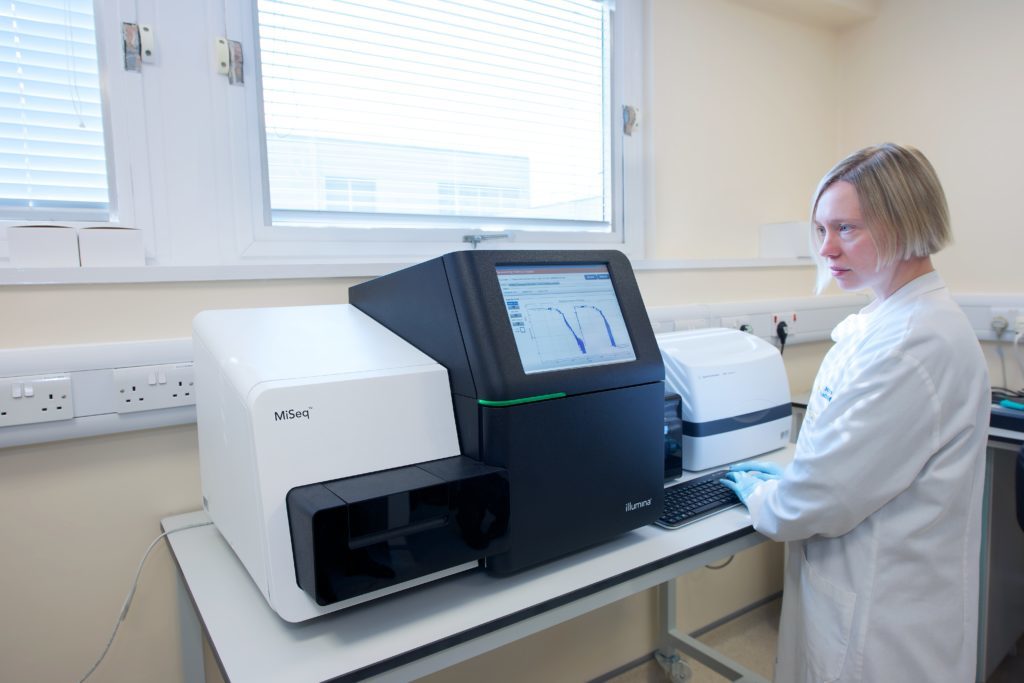
Researchers have for the first time shown that standard tuberculosis (TB) diagnostic tests can be replaced by a sub-24 hour genetic test applied to the TB bacteria in a patient’s sputum.
It currently takes up to two months to obtain the full diagnostic information for a patient with TB, as the bacteria grow very slowly in the laboratory. Scientists have sought for years to bypass this time-consuming step by examining the bacterial DNA directly from a sputum sample. However since most of the cells in sputum are human, it is difficult to spot the signal (TB DNA) within the noise (human and other bacteria) and even harder to find a method that might be affordable and practical across the world.
The new process, led by researchers from the University of Oxford and described in the Journal of Clinical Microbiology, rapidly processes the sputum to preferentially retain TB, using simple and relatively affordable materials, and then sequences and analyses the bacterial DNA. The Oxford team worked with researchers from the University of Nottingham, the Foundation for Medical Research, Mumbai, and Public Health England.
Until recently, DNA sequencing has required heavy machines and a well-equipped laboratory, which has limited its potential applications in the field. In this study, researchers have also shown that by using a new, real-time, handheld sequencing device (Oxford Nanopore MInION) they can achieve identical results, but with a process that might be applied anywhere in the world. In one example they achieved an effective turnaround time of 12.5 hours.
By using DNA sequencing, not only does this method detect drug-resistant TB bugs – vital information for the patient – but it also enables the tracking the geographical spread of strains, which is hugely valuable to public health workers, and something traditional tests cannot do.
TB is one of the top causes of death by infectious disease in the world, with 10.4 million cases of the disease in 2015, and 1.1 million deaths directly attributable to TB.
Professor Derrick Crook, NIHR Oxford Biomedical Research Centre said: “The use of whole genome sequencing to diagnose, detect drug resistance and very accurately type TB is a world first for any disease on this scale. By working closely with our partners, we are now able to use cutting edge science to effectively treat these patients with the right medicines quickly. We are immensely proud of the contribution this makes to the prospects of better treatment of TB globally. This approach will also increasingly be used for many other infectious diseases. Our ambition is to achieve this as quickly as possible so many infections can be better diagnosed and treated.”
The full paper, ‘Same-day diagnostic and surveillance data for tuberculosis via whole genome sequencing of direct respiratory samples’, can be read in the Journal of Clinical Microbiology (JCM).
This research was funded by the Wellcome Trust, Royal Society and the NIHR Oxford Biomedical Research Centre.